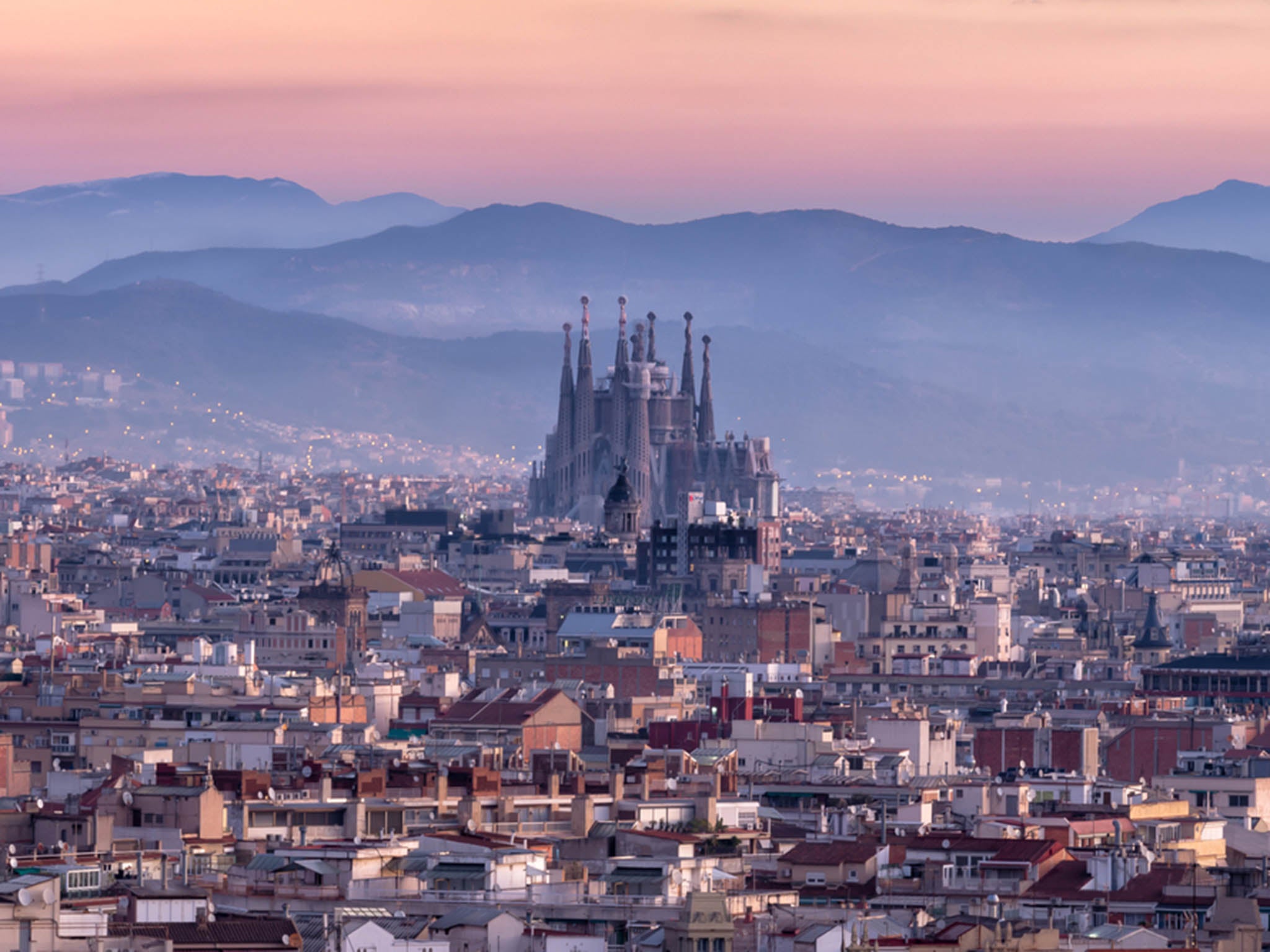How to stop city breaks killing our cities
Our obsession with city breaks is putting a strain on local infrastructure and the environment. But it’s not too late – we need to follow Barcelona’s lead

Can’t wait to pack your bags and head off on holiday again? It used to be that people would look forward to a long break in summer, but now tourists have got used to regular short breaks through the year. We love to jet off to the world’s glittering cities, even if only for a day or two. The trouble is, binge travelling may be killing the places we visit.
You may even have seen some “tourists go home” graffiti on your last trip, and it’s not hard to see why. Barcelona is a good example of how a city can groan under the weight of its popularity. It now has the busiest cruise port, and the second-fastest growing airport in Europe. Walking through the Barcelona streets at peak season (which now never seems to end) flings you into a relentless stream of tourists. They fill the city’s hot spots in search of “authentic” tapas and sangria, and a bit of culture under the sun. The mayor has echoed residents’ concerns over the impact of tourism; a strategic plan has been put in place.
It is true though, that cities tend to start managing the impact of tourism only when it is already too late. It creeps up on them. Unlike visitors to purpose-built beach destinations and national parks, city-break tourists use the same infrastructure as the locals: existing systems start to slowly stretch at the seams. Business travellers, stag parties and museum visitors will all use existing leisure facilities.

Barcelona may only be the 59th largest city in the world, but it is the 12th most popular with international visitors. Compared to London or Paris, it is small, and tourism has spiked sharply since the 1992 Olympics rather than grown steadily as in other European favourites like Rome.
Growth is relentless. The UN World Tourism Organisation (UNWTO) even speaks about tourism as a right for all citizens, and citizens are increasingly exercising that right: from 1 billion international travellers today, we will grow to 1.8 billion by 2030, according to UNWTO forecasts.
Faced with this gathering storm, just who is tourism supposed to benefit? Travellers, cities, residents or the tourism industry?
Market forces
Managing the impact of tourism starts by changing the way destinations market themselves: once the tourists arrive, it’s too late. Tourism authorities need to understand that they are accountable to the city, not to the tourism industry. When the city of Barcelona commissioned the University of Surrey to look into how it might best promote sustainable development, we found a series of techniques that have been incorporated, at least in part, into the city’s 2020 Tourism Strategy.
In the simplest terms, the trick is to cajole tourists into city breaks that are far less of a burden on the urban infrastructure. In other words, normalising the consumption of sustainable tourism products and services. In Copenhagen, 70 per cent of the hotels are certified as sustainable and the municipal authority demands sustainability from its suppliers.
Destinations must also be accountable for the transport impact of their visitors. The marketing department might prefer a Japanese tourist to visit Barcelona because, on average, they will spend €40 more than a French tourist – according to unpublished data from the Barcelona Tourist Board – but the carbon footprint we collectively pay for is not taken into account.

Crucially, for the kind of city breaks we might enjoy in Barcelona, the biggest part of the carbon footprint from your holiday comes from your transport. Short breaks, therefore, pollute more per night and so destinations ought to be fighting tooth and nail to get you to stay longer. It seems like a win for tourists too: a few extra days in the Spanish sun, a more relaxing break, and all accompanied by the warm glow of self-satisfaction and a gold star for sustainability.
Destinations can also target customers that behave the most like locals. Japanese first-time visitors to Barcelona will crowd the Sagrada Família cathedral, while most French tourists are repeat visitors that will spread out to lesser-known parts of the city. Reducing seasonality by emphasising activities that can be done in winter or at less crowded times, and geographically spreading tourism by improving less popular areas and communicating their particular charms can also help reduce pressure on hot spots, much like Amsterdam is doing.
Turnover is vanity, and profit margins are sanity. No city should smugly crow about the sheer volume of visitors through its gates. If tourism is here to stay, then the least cities can do is to sell products that will have the greatest benefit for society. Whether it’s Barcelona, Berlin, Bologna or Bognor, there should be a focus on locally and ethically produced products and services that residents are proud to sell. Tourist boards should work with small businesses that offer creative and original things to do and places to stay, adding breadth to the city’s offering.
Whether Barcelona will introduce these ideas will depend on the bravery of politicians and buy-in from the powerful businesses that are happily making short-term profits at the expense of residents and the planet. It is possible to do things differently, and for everyone to benefit more. It may be that the tipping point lies in the age-old mechanics of supply and demand: bear that in mind next time you’re booking a quick city break that looks like it’s only adding to the problem.
Xavier Font is a professor of sustainability marketing at the University of Surrey. This article was originally published on The Conversation (www.theconversation.com)
Join our commenting forum
Join thought-provoking conversations, follow other Independent readers and see their replies
Comments
Bookmark popover
Removed from bookmarks